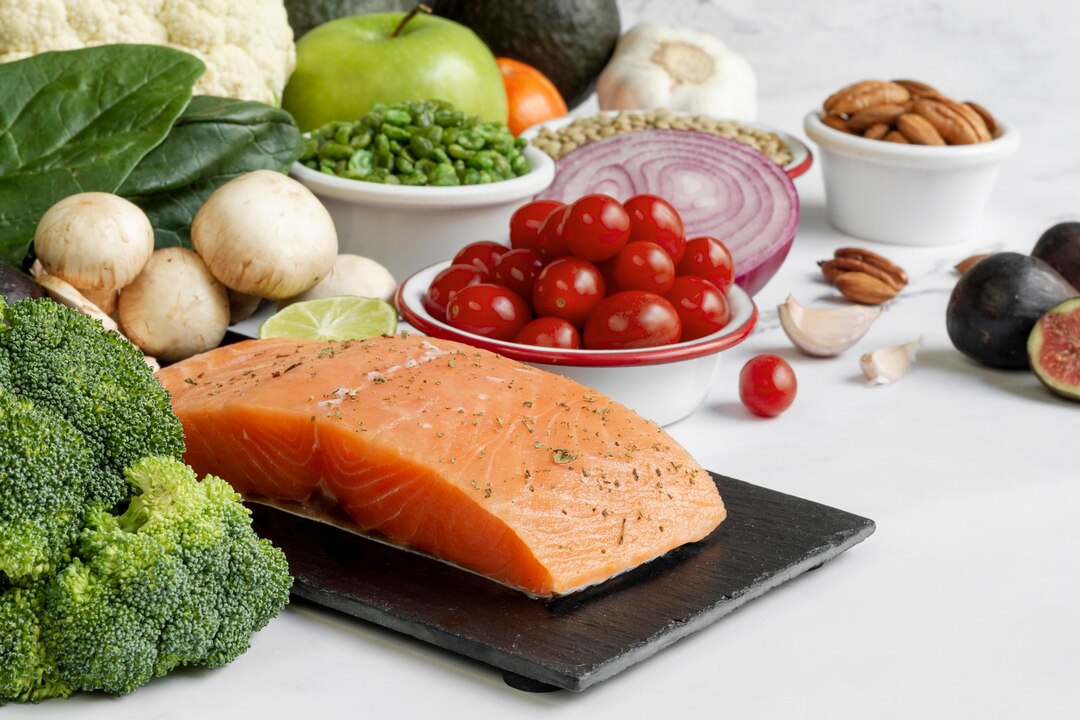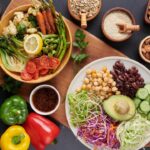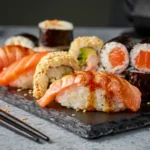There is no magic food that can guarantee protection against cancer, but incorporating certain foods into your diet may help lower the risk of developing the disease. Research supports that some foods contain beneficial compounds, including antioxidants, vitamins, and polyphenols, which may reduce inflammation and support overall health. By consuming a variety of these cancer-fighting foods as part of a balanced diet, you can work towards maintaining a healthy body and reducing cancer risk.
1. Apples
“An apple a day keeps the doctor away” may hold some truth when it comes to cancer prevention. Apples are rich in polyphenols, plant-based compounds that have been shown to have anticancer properties. One study found that phloretin, a polyphenol in apples, inhibited the growth of breast cancer cells without affecting healthy cells. Apples may also reduce inflammation, a key factor in cancer development.
2. Berries
Berries such as strawberries, blueberries, and raspberries are packed with vitamins, fiber, and antioxidants. Studies suggest that compounds in berries, such as anthocyanins and flavonoids, may help reduce cancer risk by protecting cells from oxidative stress. Some research highlights that bilberries and lingonberries may help prevent cancer in the digestive tract, while berries may also aid immune therapies for cancer treatment.
3. Cruciferous Vegetables
Cruciferous vegetables like broccoli, cauliflower, kale, and Brussels sprouts are rich in vitamins and fiber. They contain sulforaphane, a plant compound that has been shown to inhibit cancer cell growth and promote cell death in certain types of cancer, including colon and breast cancers. Eating 3-5 servings of cruciferous vegetables each week may help lower cancer risk, particularly in the colon and breast.
4. Carrots
Carrots are an excellent source of beta-carotene, which is linked to a lower risk of certain cancers, including lung, pancreatic, and colorectal cancers. Studies have found that raw carrot consumption may help protect against colorectal cancer, reducing the risk by up to 17%. Carrots’ antioxidant content and vitamin A also promote healthy cell function and immunity.
5. Fatty Fish
Fatty fish such as salmon, mackerel, and sardines are high in omega-3 fatty acids, which have been shown to support heart health and may reduce the risk of breast and colorectal cancers. Research suggests that omega-3s help to protect against cancer development by reducing inflammation and promoting cancer cell death.
6. Walnuts
Walnuts are an excellent source of healthy fats, fiber, and antioxidants. They contain pedunculagin, a compound that the body converts into urolithins, which may help prevent breast cancer by binding to estrogen receptors and slowing cancer cell growth. Studies have shown that including walnuts in the diet may help suppress breast cancer cell growth and inhibit the development of cancerous tumors.
7. Legumes
Legumes, including beans, peas, and lentils, are rich in fiber, which has been associated with a lower risk of several cancers, including breast cancer. A study found that diets high in bean fiber reduced the risk of breast cancer by 20%. Legumes also provide important nutrients like protein, which can help maintain muscle mass and overall health.
8. Grapes
Red and purple grapes contain resveratrol, a powerful antioxidant that has shown promise in fighting cancer. Resveratrol helps to protect cells from oxidative damage and may inhibit cancer cell growth. Grapes are also rich in flavonols, phenolic acids, and other antioxidants that may contribute to cancer prevention.
9. Whole Grains
Consuming whole grains instead of refined grains is associated with a lower risk of cancer, particularly colorectal, esophageal, and pancreatic cancers. Whole grains such as brown rice, oats, and quinoa are rich in fiber, vitamins, and minerals, all of which help maintain healthy digestion and protect against cancerous cell growth.
10. Dark Chocolate
Dark chocolate contains polyphenols, flavonoids, and antioxidants, which may offer cancer-preventing properties. Some studies have suggested that moderate consumption of dark chocolate could reduce the risk of cancer death by up to 12%. However, it’s important to choose dark chocolate with at least 70% cocoa to maximize the health benefits.
11. Olive Oil
Olive oil, a staple in the Mediterranean diet, is rich in healthy monounsaturated fats and antioxidants, including polyphenols. Regular consumption of olive oil has been linked to a lower risk of various cancers, including gastrointestinal, breast, and urinary tract cancers. Studies suggest that two tablespoons of olive oil per day provide significant cancer-protective benefits.
Supplements and Medications
While a balanced diet is key to cancer prevention, some individuals may benefit from supplements that provide nutrients like vitamin C, vitamin D, and vitamin E. Additionally, plant-based compounds such as sulforaphane and anthocyanins are available in supplement form. However, it’s important to consult with a healthcare professional before starting any new supplements or medications.
While no single food can prevent cancer, adopting a diet rich in cancer-fighting foods can support your overall health and help reduce the risk of developing cancer. A varied diet that includes fruits, vegetables, whole grains, and healthy fats, combined with regular physical activity and a healthy lifestyle, is your best defense against cancer. Always consult a healthcare provider for personalized advice on cancer prevention and dietary changes.








